My View: NIMBYism and Wastewater
The Barnstable Patriot
Zenas Crocker
Published 10:07 a.m. ET Feb. 3, 2021
Story Highlights
-
We will need to take multiple approaches, some new and daunting, to achieve our shared goal of clean waters on Cape Cod.
We all want our Cape Cod waters to be clean and healthy, yet many of our individual decisions create barriers to that collective goal. For over 50 years, the Cape has experienced practically unbridled residential growth with little concern for our wastewater, since we mistakenly believed that our existing Title 5 septic systems took care of the problem. Nothing could be further from the truth.
Our shared home on the Cape is essentially a sandbar. All our wastewater, essentially untreated, leaches into our aquifer, ponds, and estuaries. Experts cautioned that we would eventually have a problem, yet we ignored the warnings. Ultimately, the Cape Cod Commission identified our septic systems as the source of 85% of our water problems. Many communities are finally taking steps to save our waters. Major plans are underway for expanding municipal treatment and many alternative approaches to clean our waters are also in the works.
But for many of us, the battle has just begun. Who wants to have a waste treatment plant near them? Will we be able to handle the constant roadwork as new sewer lines are put in place? Who among us will vote for the regular march of Proposition Two overrides that will be required to pay for this work? In many cases, residents of one part of a town may feel that they are being asked to subsidize another. Unfortunately, there is an element of truth to this. Most of the Cape’s wastewater plans are focused on solving mandates driven by the Clean Water Act, which for us mainly targets our saltwater estuaries on Nantucket Sound. In truth, all Cape waters are in trouble.
The Association to Preserve Cape Cod reports that more than 70 percent of our ponds and lakes are unhealthy and deteriorating. Our drinking waters are showing a steady increase in nitrogen load, and PFAS (poly- and perfluoroalkyl substances, or “forever chemicals”) have become a real challenge. Experts estimate that in the Town of Yarmouth, 20% of the drinking water comes from water sources that have been “recharged” with wastewater. This is a problem for the whole Cape, as we routinely put processed wastewater back into our sandy soil and thus, our aquifer.
Paying to expand and improve wastewater treatment is only part of the challenge. Sighting new pump stations, a new treatment plant, or expanding one, means fighting the NIMBY (Not in My Back Yard) crowd. The Town of Barnstable is proposing one of the Cape’s largest capital projects in history with plans to expand municipal treatment that will involve almost 150 miles of roadway and over 80 new pumping stations. Local opposition to one of the first pumping stations in Centerville became so contentious that it was front-page news and involved legal challenges.
My organization, the Barnstable Clean Water Coalition, is working on alternative treatment approaches to our water and wastewater challenges. To help clean the local estuaries of excess algal growth caused from nitrogen loaded groundwater (from our Title 5s), we have proposed expanded oyster farming. The NIMBY crowd has been quick to object to the “unsightly” floating gear that is often required to grow juvenile oysters.
Recently, we decided to support a permit for a new dock in Cotuit. In this case, we felt that the various steps a homeowner was willing to take to help improve water quality and the aquatic environment justified our stand. Yet homeowners quickly spoke out belittling any potential benefits. Ironically, one neighbor pointed to another project we support, the dredging of a Mill Pond, as what we should be more focused on. Unfortunately, we already know that some residents around the pond would beg to differ! NIMBY strikes again!
Solving our wastewater problem will mean that we all must work together and be willing to make sacrifices. All of us will have to make some financial investment, some more than others. We will face years of disruptive traffic. Our waterways will continue to deteriorate because our groundwater is already so heavily polluted.
Alternatives, like those I mentioned, must be considered. Municipal sewer expansion methods must be supported. Finally, we need to invest more time, money, and resources in developing innovative septic systems that can replace our horrible cesspools and Title 5s. We will need to take multiple approaches, some new and daunting, to achieve our shared goal of clean waters on Cape Cod. Because that is what we all want in the end, right? Clean waters to drink, swim in, sail on, and leave as a legacy for our children.
The author is CEO of the Barnstable Clean Water Coalition, a nonprofit working to restore and preserve clean water in Barnstable. This is the first in a three-part series.
